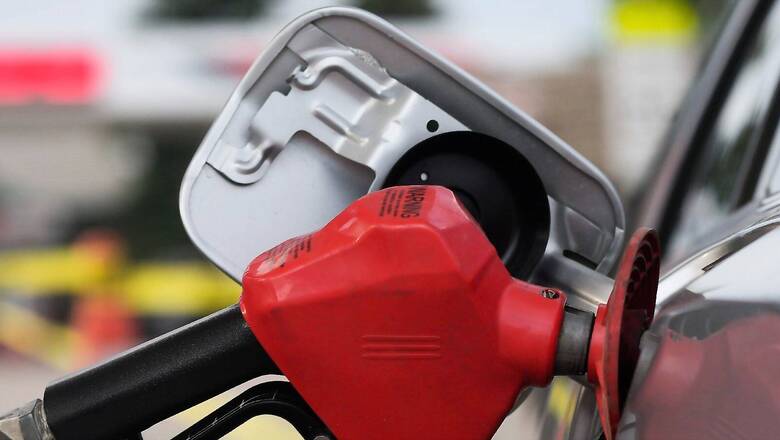
views
The government has delayed the levy of a Rs 2 excise duty on unblended petrol by one month to November 1, and on unblended diesel by 6 months to April 1 next year, according to a notification by the finance ministry. The Budget 2022 had envisaged imposing the excise duty on petrol and diesel that are not blended with ethanol and bio-diesel, from October 1.
According to the Gazette notification issued late on Friday (September 30), the finance ministry said “petrol which is intended for retail sale, not so blended with ethanol or methanol” will attract Rs 3.40 per litre basic excise duty effective November 1, 2022, instead of Rs 1.40 a litre currently. Branded petrol, not doped with ethanol, will attract Rs 4.60 a litre excise duty as against Rs 2.60 currently.
In the case of diesel, it said the fuel “intended for retail sale, not so blended with alkyl esters of long chain fatty acids obtained from vegetal oils, commonly known as bio-diesels” shall attract Rs 3.80 a litre basic excise duty instead of Rs 1.80. Branded diesel will attract Rs 6.20 a litre basic excise levy as against Rs 4.20 currently.
Currently, 10 per cent ethanol, which is extracted from sugarcane or surplus foodgrain, is mixed with petrol in order to reduce crude oil imports. But there is only an experimental blending of bio-diesel, extracted from non-edible oilseeds, in diesel — the most used fuel in the country.
In June 2021, the central government had set the target of achieving 10 per cent ethanol blending in petrol by November 2022, which was achieved five months in advance. Achieving the target early has made the government advance the target of 20 per cent ethanol blending by five years to 2025.
Finance Minister Nirmala Sitharaman in her Budget Speech 2022 said, “Blending of fuel is a priority of this government. To encourage the efforts for blending of fuel, unblended fuel shall attract an additional differential excise duty of Rs 2 per litre from the 1st day of October 2022.”
India imports over 80 per cent of its crude oil requirements. Biofuels are a good alternative to reduce the country’s dependence on crude oil imports, which increased from 172 million metric tonnes (MMT) in 2011-12 to 212 MMT in 2021-22.
While the additional duty will push oil companies to procure more ethanol for mixing in petrol and arrange for logistics for transporting to deficient areas, it is unlikely that the country will be able to build infrastructure to manufacture bio-diesel in the scale needed for blending in diesel, according to PTI quoting industry officials.
(With inputs from Agencies)
Read all the Latest Business News and Breaking News here




















Comments
0 comment